Is Indigenous Peoples' Day a federal holiday? What to know about commemoration
Indigenous Peoples' Day, which falls on the second Monday of October as a counter-celebration to Columbus Day, commemorates Native American history, culture and resilience.
“Indigenous Peoples' Day celebrates the invaluable contributions and resilience of Indigenous People and recognizes our inherent sovereignty,” said Indigenous Peoples’ Initiative Chairman Dylan Baca in a press release.
When was Indigenous Peoples' Day established?
The holiday has gained momentum in recent decades and is recognized alongside Columbus Day. In 2021, President Joe Biden signed the first presidential proclamation of Indigenous Peoples Day, a commemoration-turned-holiday that began in 1977.
In 1990, South Dakota became what is believed to be the first state to officially acknowledge Columbus Day as something different, though it was dubbed Native American Day then, New York Times’ Melina Delkic and Anna Betts report.
Columbus Day was first established as a state holiday in Colorado more than 100 years ago and was first observed as a federal holiday in 1937, according to NPR.
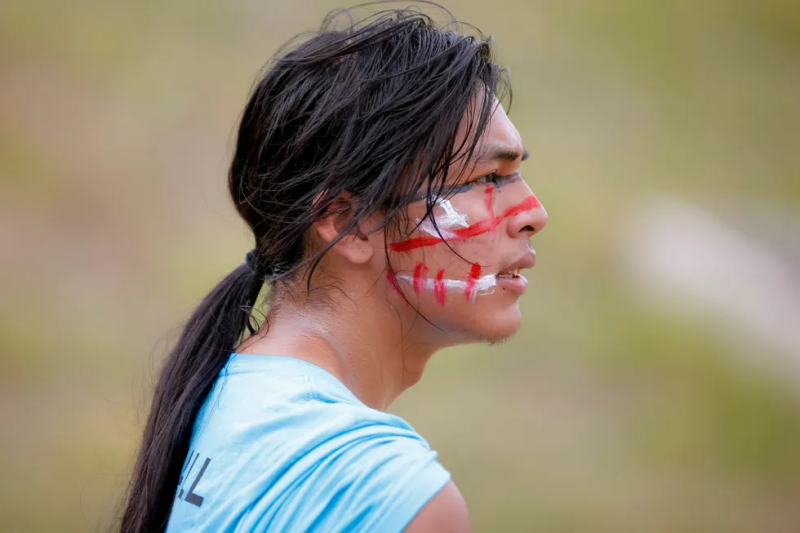
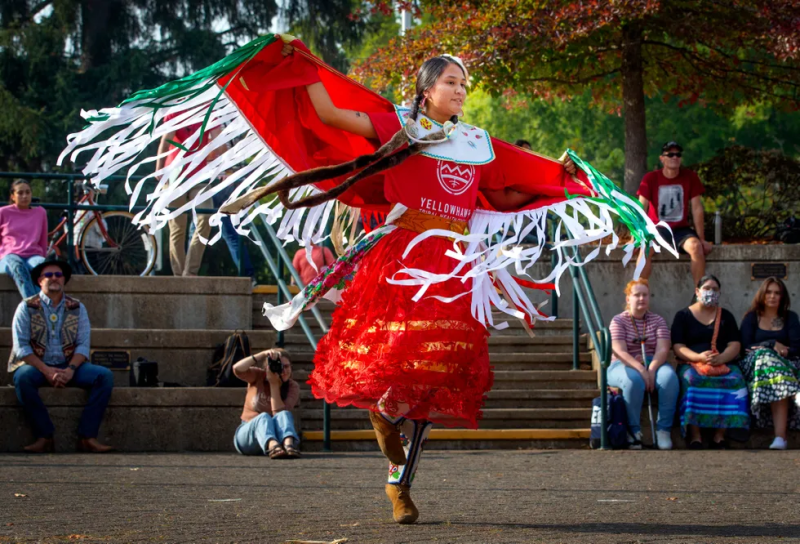
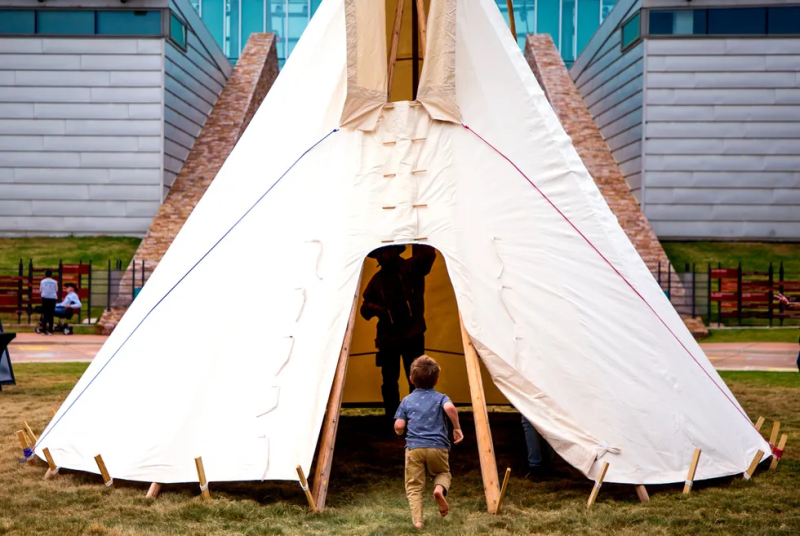
Is the stock market open Columbus Day?We have answers about the holiday
Is Indigenous Peoples Day a federal holiday? Did the US change Columbus Day to Indigenous People Day?
No, it is not yet a federal holiday, but some lawmakers are working on legislation to change that, New York Times reported.
Columbus Day is still a federal holiday, and while some argue it celebrates Italian American heritage, others say it glorifies an exploration that led to the genocide of native peoples and that Christopher Columbus isn’t an appropriate person to celebrate.
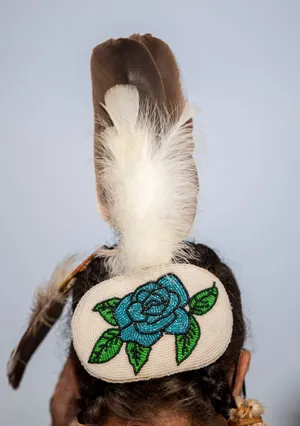
According to Pew Research Center, Columbus Day “seems to be fading as a widely observed holiday.”
Lawmakers from the House and Senate this year reintroduced a bill that would establish Indigenous Peoples’ Day as a federal holiday on the second Monday of October, replacing Columbus Day. U.S. Representative Norma Torres (CA-35) first introduced legislation to recognize Indigenous Peoples’ Day in 2019, according to a statement from the lawmakers, though many schools, businesses, cities and states have observed the holiday for years. The bill has 56 co-sponsors in the House, several co-sponsors in the Senate, and support from the Cherokee and Navajo nations, according to the lawmakers’ statement.
“Establishing Indigenous Peoples Day as a federal holiday is an opportunity to acknowledge the painful legacy of colonization that continues to be felt to this day and celebrate the countless contributions of Indigenous communities to our country,” said U.S. Representative Suzanne Bonamici (OR-01) in a statement.
Which US states and territories still recognize Columbus Day or Indigenous Peoples’ day?
Based on a Pew Research Center review of state statutes, human resources websites and other sources, only 16 states and the territory of American Samoa still observe the second Monday in October as an official public holiday exclusively called Columbus Day, meaning those government offices are closed and state workers, except those in essential positions, have a paid day off.
Four other states — including Nebraska and Rhode Island — and the U.S. Virgin Islands recognize the day as both Columbus Day and something else.
Four states, two territories and Washington, D.C. observe the day as an official public holiday but use a different name, according to Pew. Some tribal groups in Oklahoma celebrate Native American Day in lieu of Columbus Day, with some groups naming the day in honor of their individual tribes.
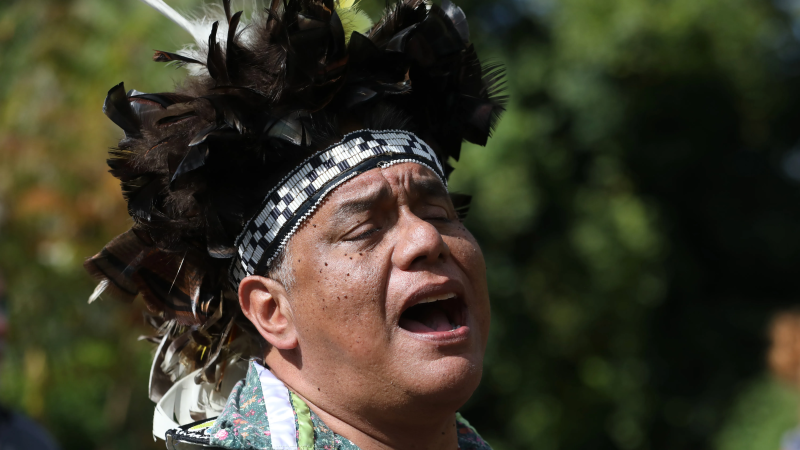
Indigenous Peoples’ Day has officially been embraced by several states via proclamation, including by Arizona, California, Iowa, Louisiana, Michigan, Minnesota, Nevada, North Carolina, Virginia, Wisconsin, plus Washington, D.C.
And states that officially celebrate it include Alabama, Alaska, Hawaii, Maine, Nebraska, New Mexico, Oklahoma, Oregon, South Dakota and Vermont.
More than 100 cities — even Columbus, Ohio, — have replaced Columbus Day with Indigenous Peoples Day, including Seattle, Los Angeles, Boston, Denver, Phoenix and San Francisco.
Contributing: Clare Mulroy, Scott Gleeson
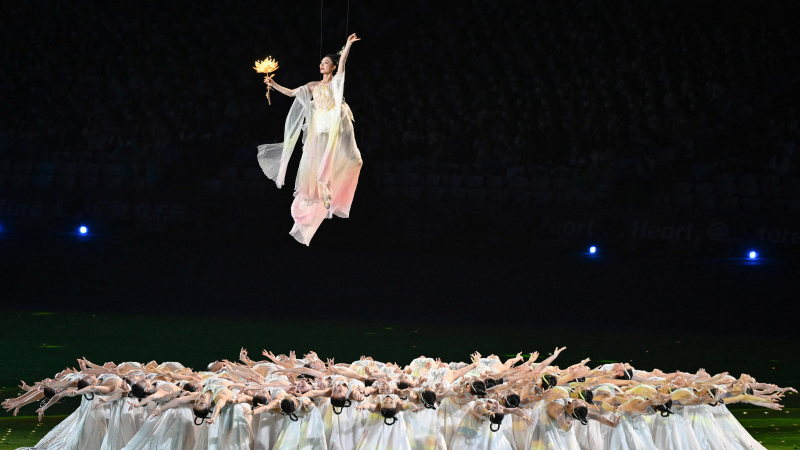
Disclaimer: The copyright of this article belongs to the original author. Reposting this article is solely for the purpose of information dissemination and does not constitute any investment advice. If there is any infringement, please contact us immediately. We will make corrections or deletions as necessary. Thank you.





